Macaws are often referred to as the “jewels of the avian world,” thanks to their dazzling plumage and captivating personalities. These birds are not just visually stunning but also intelligent, social, and affectionate.
Their ability to mimic sounds, bond deeply with their owners, and display playful behavior makes them an ideal choice for bird lovers.
However, owning a macaw requires commitment and care. This guide will explore everything you need to know about raising these magnificent creatures.
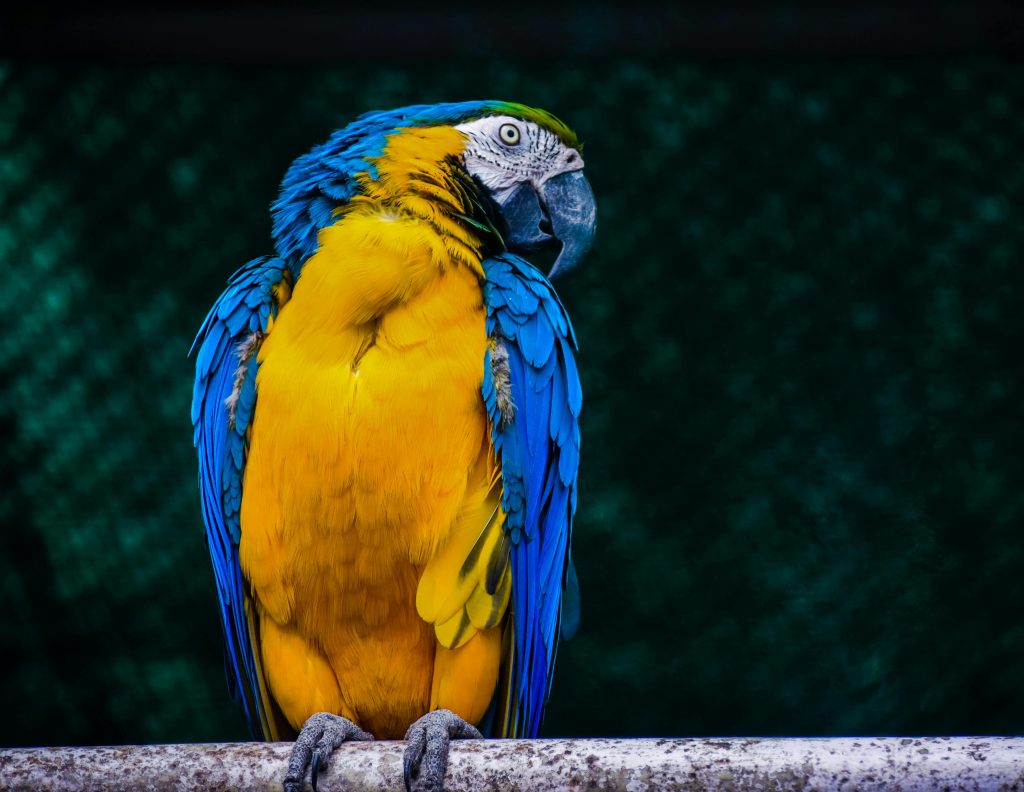
Table of Contents
Introduction
Macaws are among the most stunning and intelligent birds kept as pets. Known for their vibrant plumage and sociable nature, these parrots captivate bird enthusiasts worldwide.
With proper care and attention, macaws can be loyal and affectionate companions for decades.
Country or Region of Origin
Macaws are native to Central and South America, particularly the rainforests of Brazil, Venezuela, Colombia, and Peru. They are commonly found in dense, tropical forests and savannas.
For example, the Scarlet Macaw thrives in the Amazon basin, while the Blue-and-Gold Macaw is widespread in the northern parts of South America. Their habitats include tall trees and riverbanks where they forage for food, socialize, and nest.
Physical Characteristics: Color, Body Size, and Lifespan
Macaws are renowned for their striking appearance. They come in various colors, including vibrant reds, greens, blues, and yellows.
For instance, the Hyacinth Macaw is famous for its cobalt-blue feathers, while the Military Macaw features shades of green and red.
- Size: Macaws range from medium to large, with lengths between 20 and 40 inches and wingspans up to 4 feet.
- Lifespan: These birds are long-lived, with lifespans ranging from 30 to 50 years. Some species, like the Blue-and-Gold Macaw, have been known to live over 60 years in ideal conditions.
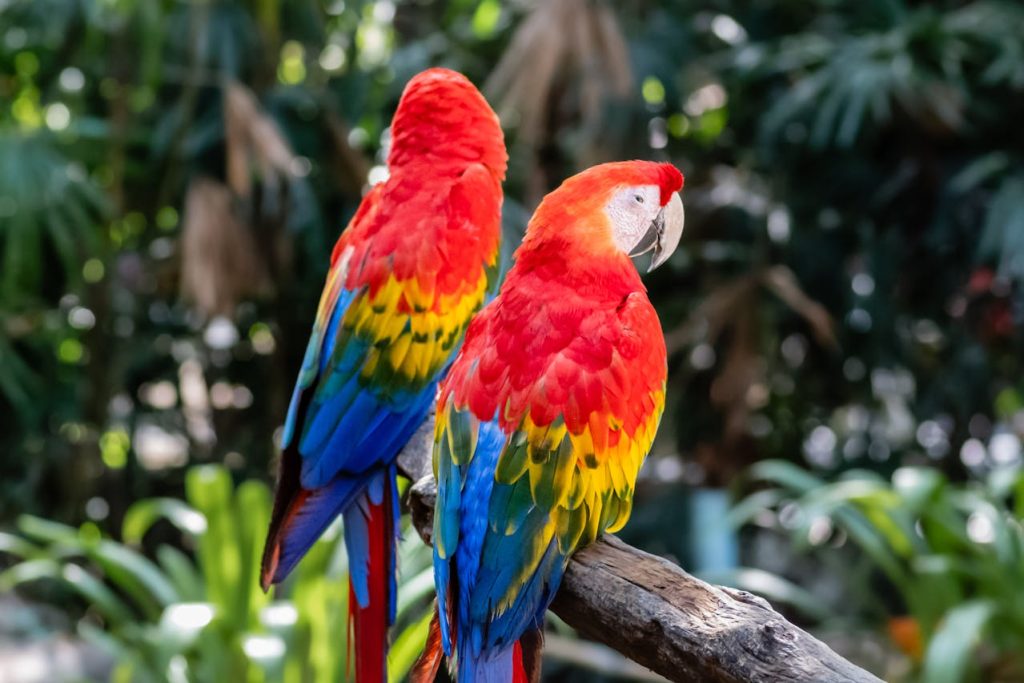
Special Traits as Pets
Macaws possess unique characteristics that make them exceptional companions:
- High Intelligence: They can solve puzzles and learn tricks. For example, macaws can be trained to fetch objects or respond to commands like “step up.”
- Strong Social Bonds: These birds often form lifelong bonds with their owners and thrive on interactive play.
- Vocal Mimicry: Macaws can mimic words and sounds, such as doorbells or phones, making them entertaining pets.
- Playful Nature: They love climbing, swinging, and chewing toys, showcasing their curious and energetic personalities.
Breeding: Eggs and Chicks
Macaws typically breed once a year. During the breeding season, female macaws lay 2 to 4 eggs. The incubation period is about 26 to 28 days. For instance, the Green-Winged Macaw pairs up for life, and both parents participate in raising their young.
The chicks are fed regurgitated food by their parents and remain in the nest for 12 to 14 weeks before fledging. Providing proper nesting boxes and a stress-free environment is essential for successful breeding.
Common Diseases
Macaws are prone to specific health issues that owners should be aware of:
- Psittacosis: A bacterial infection causing respiratory problems. Symptoms include sneezing, nasal discharge, and lethargy.
- Feather Plucking: Often caused by stress, boredom, or nutritional deficiencies, this can result in bald patches.
- Proventricular Dilatation Disease (PDD): A fatal digestive disorder that leads to weight loss and undigested food in droppings.
- Aspergillosis: A fungal infection affecting the respiratory system, especially in damp or poorly ventilated environments.
Preventive care includes regular vet visits, a clean living environment, and a well-balanced diet to ensure a healthy and happy macaw.
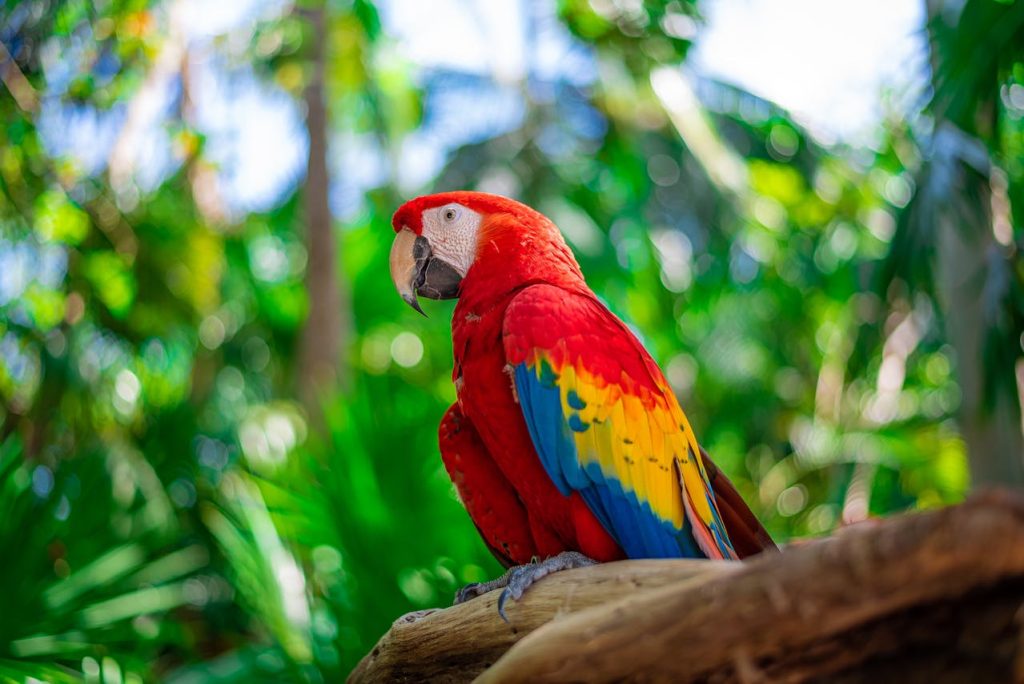
Special Care Tips for Raising Macaws
Caring for macaws requires commitment and preparation:
- Space: Provide a large, sturdy cage or aviary with dimensions of at least 36x48x60 inches.
- Diet: Macaws thrive on a varied diet that includes fresh fruits (e.g., apples, bananas, papayas), vegetables (e.g., carrots, spinach, bell peppers), nuts, seeds, and high-quality pellets. For example, the Hyacinth Macaw has a specific preference for nuts like Brazil nuts and macadamia nuts.
- Enrichment: Offer a variety of toys like foraging puzzles, ropes, and climbing structures to keep them mentally and physically stimulated.
- Safety: Avoid exposing macaws to toxic plants, fumes from non-stick cookware, or small objects that pose choking hazards.
Grooming and Care
Proper grooming is vital for a macaw’s health:
- Beak and Nail Maintenance: Provide chewable toys like wooden blocks to keep their beaks and nails naturally trimmed.
- Feather Care: Mist their feathers or let them bathe in shallow water to maintain cleanliness. Some macaws enjoy supervised showers.
- Wing Clipping: Only if necessary and under professional guidance, to prevent injuries from uncontrolled flights.
- Hygiene: Clean cages, perches, and feeding dishes daily to prevent bacterial infections and maintain overall cleanliness.
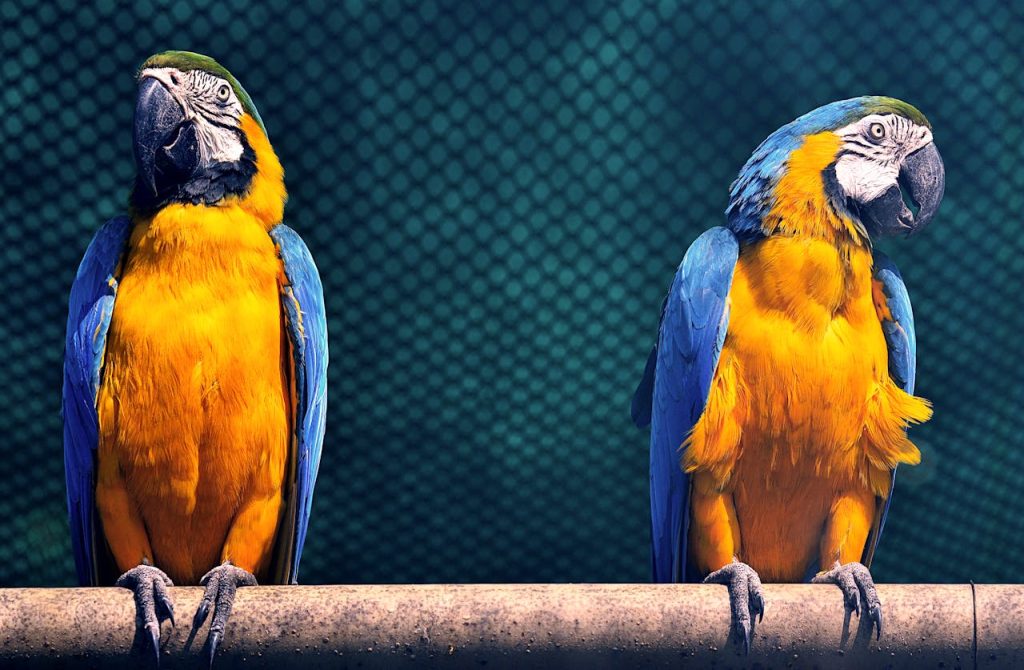
Fun Facts About Macaws
- Some macaws, like the Hyacinth Macaw, have beaks strong enough to crack open coconuts.
- They are one of the few bird species that use their feet like hands to hold food while eating.
- Wild macaws often flock together in large groups called “chatterings,” providing safety and companionship.
- Their bright feathers help them camouflage in the colorful forest canopy.
Challenges of Owning a Macaw
Macaws can be demanding pets:
- Noise Levels: They are vocal birds and can be extremely loud, especially in the mornings and evenings.
- Space Requirements: Their large size requires ample living space and an engaging environment.
- Time Commitment: Macaws need daily interaction and mental stimulation to prevent boredom and destructive behavior.
- Expense: The cost of high-quality care, toys, and regular vet visits can add up quickly.
Tips for Macaw Owners
- Routine: Establish a daily routine to provide structure and security for your macaw.
- Socialization: Introduce them to various environments and people to reduce fear and anxiety.
- Positive Reinforcement: Use treats and praise to encourage good behavior and training.
- Safe Environment: Remove potential hazards like electrical wires and toxic substances to ensure their safety.
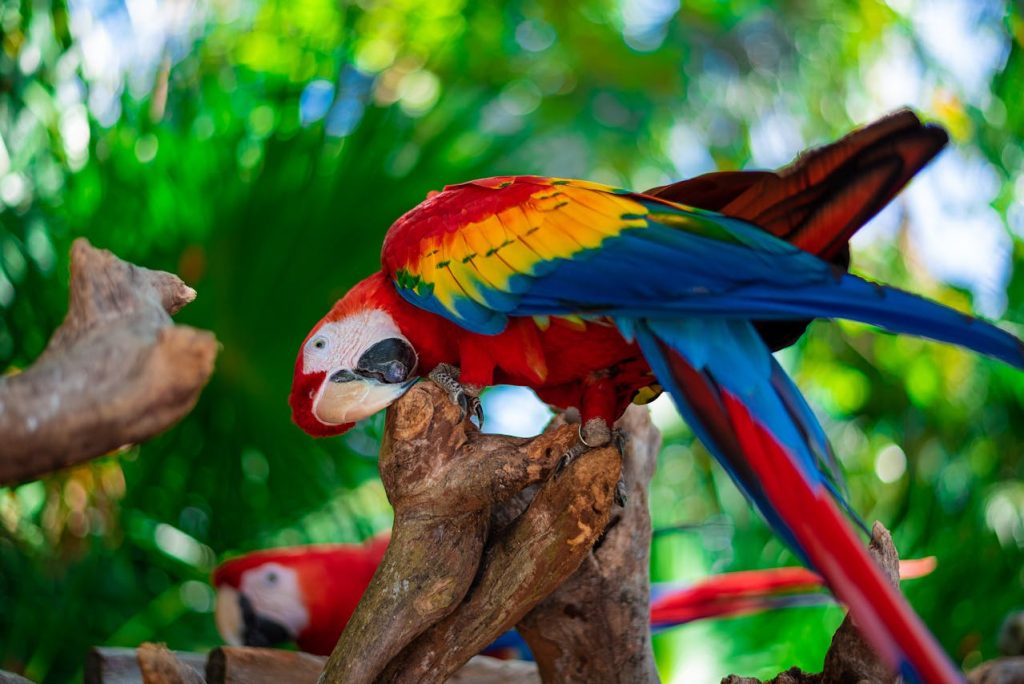
Choosing the Right Macaw Chick
Selecting a healthy chick is crucial for a successful pet-owner relationship. Look for chicks that are:
- Alert and Active: A healthy macaw chick will be curious and responsive to stimuli.
- Bright-Eyed and Smooth-Feathered: Their eyes should be clear and feathers free of damage.
- From a Reputable Breeder: Ensure the breeder provides health certificates and has hand-raised the chick for better human interaction.
For example, a well-socialized Blue-and-Gold Macaw chick will adapt quickly to new environments and bond easily with its owner.
Preparing Your Home for a Macaw
- Designate a quiet and spacious area for their cage.
- Remove toxic plants like philodendrons or oleanders and secure electrical cords.
- Install sturdy perches, swings, and hanging toys to create an engaging environment.
Socializing Your Macaw
- Gradually expose your macaw to new people, pets, and environments to build their confidence.
- Engage in interactive play to strengthen your bond.
- Train them to respond to simple commands like “step up” or “come here” using positive reinforcement.
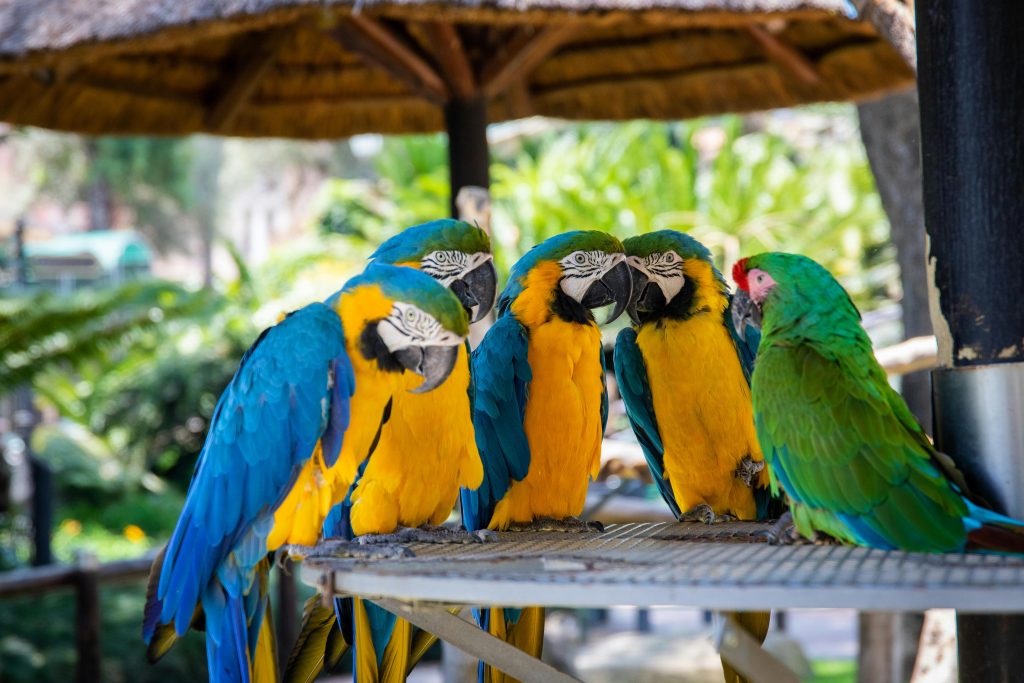
Travel and Transportation
- Use a well-ventilated, secure travel carrier for trips.
- Familiarize your macaw with the carrier before long journeys to reduce stress.
- Pack essentials like food, water, and a perch for breaks during travel.
Why Birds Make the Perfect Pets
Birds like macaws are not only visually stunning but also incredibly intelligent and engaging. They are excellent companions for those who can meet their care requirements.
Read our full guide on Why Birds Make the Perfect Pets to explore their benefits further.
Conclusion
Macaws are extraordinary pets that bring color, intelligence, and joy into their owner’s lives.
While they require significant effort and resources, the bond formed with a macaw is immensely rewarding. With proper care, they can thrive and enrich your life for decades.
FAQs
How long do macaws live?
Macaws can live 30 to 50 years, and some species may even reach 60+ years with proper care.
What do macaws eat?
They thrive on a diet of fresh fruits, vegetables, nuts, seeds, and high-quality pellets.
Are macaws noisy?
Yes, macaws are naturally loud birds, often vocalizing to communicate or express excitement.
Do macaws need a lot of space?
Absolutely, they require a large cage or aviary and plenty of room to fly and play.
How do you keep a macaw healthy?
Provide a balanced diet, regular vet checkups, clean living conditions, and daily mental stimulation.

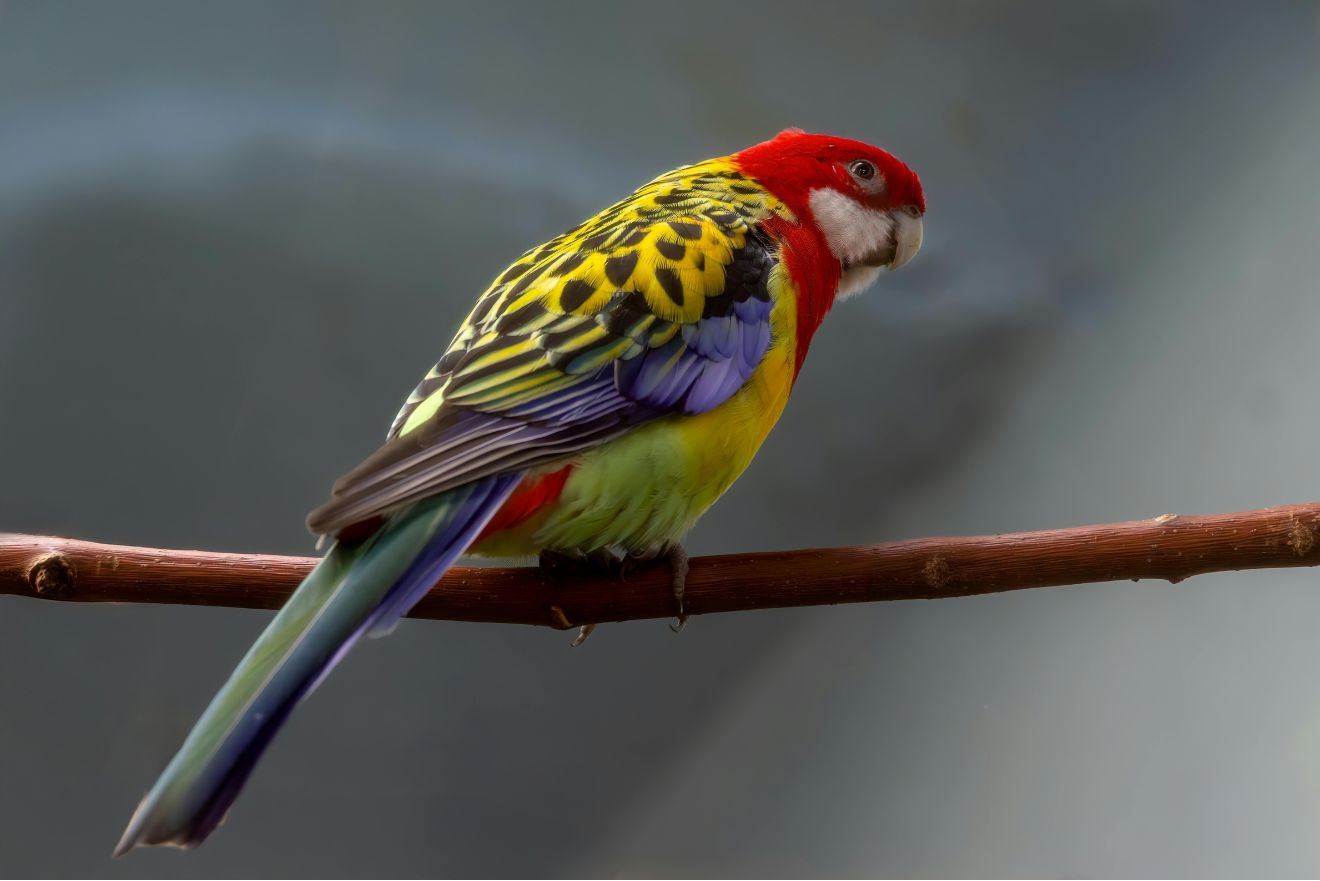

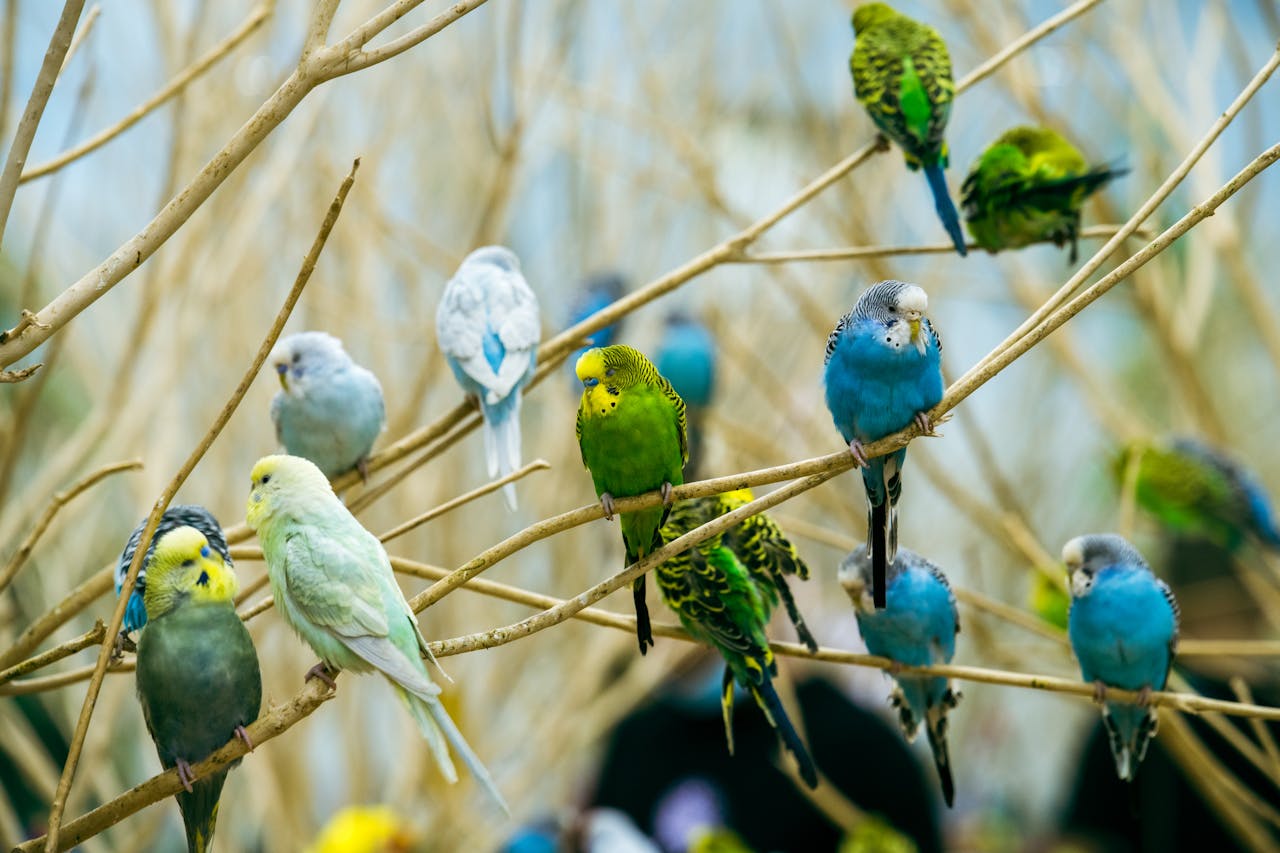
5 Comments
Pingback: Cockatiels for Beginners: Tips to Keep Your Feathered Friend Happy - Pet Bonded
Pingback: Lovebirds Behavior & Bonding: Secrets to a Happy Pet - Pet Bonded
Pingback: African Grey Parrots: Why They Are the Smartest Pet Birds? - Pet Bonded
Pingback: Parrotlets Care Guide: Diet, Training & Lifespan Tips for Owners - Pet Bonded
Pingback: Canaries: The Ultimate Guide to These Melodic Singers in the Bird World - Pet Bonded